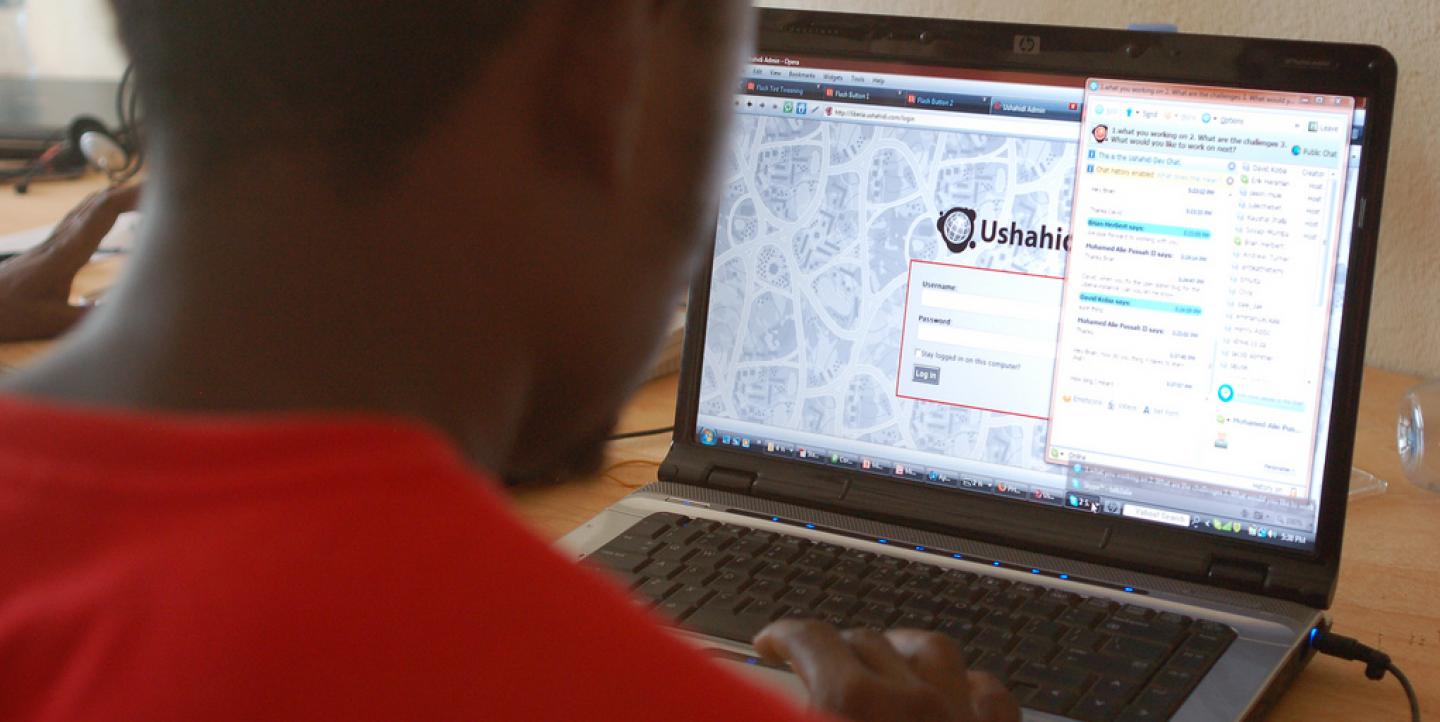Each week as part of the Knight International Media Innovators blog, the ICFJ Knight team will round up stories focused on how their fellows are making an impact in the field. Find out more about the fellows' projects by clicking here.
Key takeaways from the Code for All Summit, going beyond a data journalism masterclass, protecting journalists in Mexico and more from the Knight Fellows in this week’s roundup.
Code for All Summit: Connecting the global civic technology community
Code for Africa (CfAfrica) assembled the largest delegation to the annual Code for All Summit in New York City last week. This included ICFJ Knight Fellows Justin Arenstein and Chris Roper, Serah Rono and David Lemayian of CfAfrica, Adi Eyal and Greg Kempe of Code for South Africa (CfSA) and Temi Adeoye of Code for Nigeria.
Sessions at the event were recorded and can be viewed via this Livestream link:
-
Eyal spoke about defining and measuring impact (Part 1 and Part 2)
-
Skip ahead to minute 8:40 of this clip to see Kempe speaking about CfSA and its work, including the BlackSash poster project, Living Wage, Cape Town’s city data portal (Africa’s first on the city level) and their new data journalism school
Arenstein presented about CfAfrica and the African Network of Centers for Investigative Reporting (ANCIR). He showcased CfAfrica projects like GotToVote and Star Health. Arenstein also discussed ANCIR’s investigative pieces about the World Bank and Australian mining in Africa, which were reported alongside the International Consortium of Investigative Journalists and others.
See Arenstein's slides here.
Going beyond a data journalism masterclass
After CfAfrica held its first data journalism masterclass, ICFJ Knight Fellow Stephen Abbott Pugh tackled the hard question of sustainability: How do the lessons from the masterclass extend beyond the session? What can journalists do to maintain that momentum? In this post, Abbott Pugh tries to provide some ideas.
ANCIR grants available for reporting on gold mining in West Africa
ANCIR is inviting journalists to apply for grants of US$1,000 to report on issues related to gold mining in the West African region with a focus on Mauritania, Cote d’Ivoire and Mali. Journalists can learn more about this opportunity and how to apply through this page.
Updates from Media Factory digital bootcamps across Latin America
ICFJ Knight Fellow Mariano Blejman’s Media Factory, Latin America’s first journalism incubator, has held a series of digital bootcamps for local journalists this summer. After events in Buenos Aires, Santiago and Lima, Blejman provides updates from the recent bootcamps in São Paulo and Mexico City, with the latter supported by ICFJ Knight Fellow Juan Manuel Casanueva. The series wrapped up on Aug. 3 in Bogotá.
How journalists can deal with violence in Mexico
Violence against journalists in Mexico is not new, but the actors and locations are shifting, according to reports on the ground. In a Global Voices article, former ICFJ Knight Fellow Javier Garza discusses how journalists can adapt and continue reporting on crime and corruption in Mexico. Garza also penned an article in El Pais and spoke to the Knight Center at the University of Texas on the same topic, both in Spanish.
Ekuatorial and InfoAmazonia apply the fundamental principles of geojournalism
Data mapping achieves some of its most powerful results when used for environmental reporting. Former ICFJ Knight Fellow Gustavo Faleiros explains how he helped shape two such projects, Ekuatorial and InfoAmazonia, in a recent article.
Code for Africa represented in the Top 200 Young South Africans
Mail and Guardian announced Nqobile Sibisi as one of the Top 200 Young South Africans. Sibisi is the program manager for CfAfrica and a leader in South Africa's media industry. She manages CfAfrica’s pan-African work including the Hacks/Hackers Africa network.
Chicas Poderosas: Conference lessons and #ChicasFellow highlights
Global Voices reports on last month’s Chicas Poderosas conference at Stanford University, organized by former ICFJ Knight Fellow Mariana Santos. Santos discusses the main lessons from the conference and highlights two Dow Jones Chicas Scholarships given to conference participants to work on digital storytelling, one at National Public Radio and the other at ProPublica.

